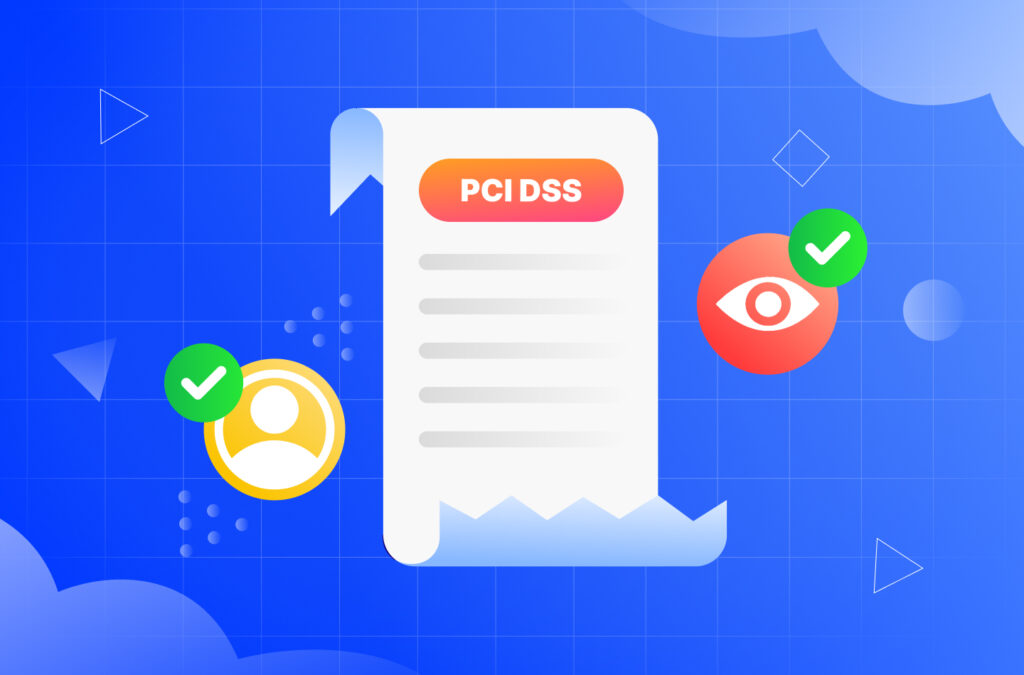Navigating the complex world of financial transactions requires not just efficient systems but also strict adherence to security standards. Among these standards, the Payment Card Industry Data Security Standard (PCI DSS) plays a crucial role in protecting cardholder data and ensuring transaction security.
However, failure to comply with PCI DSS can lead to substantial fines and other serious repercussions. In this comprehensive guide, we will explore the details of PCI DSS Fines, the costs associated with non-compliance, and how you can avoid these penalties.
What is PCI DSS, and Does It Apply to Your Business?
The Payment Card Industry Data Security Standard (PCI DSS) is a set of security guidelines established by major credit card companies to protect cardholder data from theft and fraud. This standard encompasses various requirements designed to ensure that all companies handling payment card information maintain a secure environment.
Does PCI DSS Apply to Your Business?
PCI DSS is applicable to all entities that handle credit card transactions. This includes:
- Merchants: Businesses of all sizes that accept credit card payments.
- Service Providers: Companies that store, process, or transmit cardholder data on behalf of merchants.
- Payment Gateways: Entities that facilitate transactions between merchants and financial institutions.
Whether you run a small e-commerce site or a large retail chain, PCI DSS compliance is mandatory if you handle credit card information. Failing to comply can expose your business to significant risks and penalties.
Causes of PCI DSS Fines and How Much Can It Cost You?
The financial consequences of PCI DSS non-compliance can be severe, with fines varying based on the nature and extent of the violation. Here are some common causes of PCI DSS Fines:
- Data BreachesWhen a data breach occurs due to inadequate security practices, the affected business can face substantial fines. The cost of a breach often includes not just the fine but also the expenses related to forensic investigations, notification of affected individuals, and remediation efforts.
- Incomplete PCI Assessments: Businesses are required to complete a self-assessment questionnaire (SAQ) or undergo a formal PCI DSS assessment. Failure to complete these assessments or inaccuracies in reporting can lead to PCI DSS Fines.
- Poor Security Practices: Not adhering to required security measures, such as encryption, secure storage, and regular security testing, can result in financial penalties.
How Much Can PCI DSS Fines Cost You?
The cost of PCI DSS fines depends on various factors, including the size of the business and the severity of the non-compliance. Here’s a breakdown of potential costs:
- Small Merchants: Smaller businesses might face fines ranging from $5,000 to $20,000 per month until they achieve compliance. These fines can accumulate quickly, especially if the business remains non-compliant over an extended period.
- Large Merchants: Larger organizations can incur fines that range from $50,000 to $100,000 per month. In extreme cases, fines can exceed this range, particularly if the breach affects a significant number of cardholders or results in substantial financial losses.
In addition to direct PCI DSS Fines, businesses may also face increased transaction fees from payment processors and significant costs related to upgrading security measures and conducting remediation activities.
Consequences of Not Being PCI Compliant
The repercussions of failing to adhere to PCI DSS extend beyond mere financial penalties. The consequences can impact your business in several ways:
- Legal Liability: Non-compliance can expose your business to legal action from affected parties, including customers, financial institutions, and regulatory bodies. This can result in costly lawsuits and legal fees.
- Reputation Damage: A data breach or non-compliance issue can severely damage your company’s reputation. This can lead to a loss of customer trust and confidence, which can significantly impact your revenue and market position.
- Operational Disruptions: Addressing the fallout from a data breach or non-compliance can disrupt your business operations. This includes the costs associated with system upgrades, enhanced security measures, and the potential need to temporarily halt transactions while issues are resolved.
PCI DSS with Fintechrite
For fintech companies, adhering to PCI DSS is not just a regulatory requirement but a cornerstone of maintaining customer trust and ensuring secure financial transactions. Fintechrite provides specialized support for fintech businesses to navigate the complexities of PCI DSS compliance. Our services include:
- Customized Compliance Strategies: We develop tailored strategies to help your business meet PCI DSS requirements effectively.
- Risk Assessments: Our comprehensive risk assessments identify potential vulnerabilities and provide solutions to mitigate risks.
- Ongoing Support: We offer continuous support to ensure that your compliance efforts remain up-to-date with evolving PCI DSS standards.
By partnering with Fintechrite, fintech companies can ensure robust security measures and maintain compliance with PCI DSS standards, minimizing the risk of costly PCI DSS Fines and reputational damage.
FAQ
Q: How can I avoid PCI DSS Fines?
A: To avoid PCI fines, it is essential to:
- Maintain Compliance: Regularly review and update your security measures to ensure they meet PCI DSS requirements.
- Complete Assessments: Accurately complete and submit the self-assessment questionnaire or undergo a formal PCI DSS assessment as required.
- Implement Security Best Practices: Adopt and maintain robust security practices, including data encryption, secure storage, and regular vulnerability testing.
- Stay Informed: Keep up-to-date with changes in PCI DSS standards and industry best practices to ensure ongoing compliance.
Q: Is it mandatory to be PCI compliant?
A: Yes, PCI compliance is mandatory for any organization that processes, stores, or transmits cardholder data. Compliance with PCI DSS is required to protect sensitive payment information and prevent data breaches. Failure to comply not only risks financial penalties but also legal and reputational consequences.
Conclusion
Understanding the financial and operational implications of PCI DSS non-compliance is crucial for any business handling credit card transactions. By adhering to PCI DSS requirements and seeking expert guidance from partners like Fintechrite, you can safeguard your business from significant PCI DSS Fines and other adverse consequences. Ensuring compliance not only protects your company from financial penalties but also builds trust with your customers and reinforces the security of your financial transactions.

